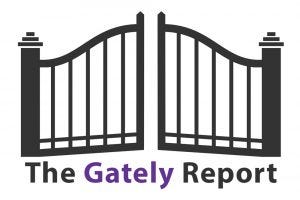Ivanti has discovered a new, disturbing trend in ransomware.

Recruiting and working with more cloud ecosystem partners are key to Trend Micro reaching its channel sales goals in 2022.
 That’s according to Louise McEvoy, Trend Micro’s vice president of U.S. channel sales. Cloud “ecosystem” partners are able to reach more customers and provide more cloud security expertise.
That’s according to Louise McEvoy, Trend Micro’s vice president of U.S. channel sales. Cloud “ecosystem” partners are able to reach more customers and provide more cloud security expertise.
Trend Micro‘s Smart Protection Network (SPN) stopped 94.2 billion cyber threats heading for consumer, government and business customers in 2021. The volume of detections represents a 42% increase over the number recorded in 2020.
Last month, Trend Micro announced has been included in the customer’s choice quadrant of the latest Gartner Peer Insights Voice of the Customer report for endpoint protection platforms.
Trend Micro Attracting Many Cloud Ecosystem Partners
In a Q&A with Channel Futures, McEvoy and Jon Clay, Trend Micro‘s vice president of threat intelligence, talk about Trend Micro’s channel business and what’s most worrisome about the 2022 threat landscape.
Channel Futures: What are your goals in terms of Trend Micro’ channel sales in 2022?

Trend Micro’s Louise McEvoy
Louise McEvoy: If I were to say where are we trying to grow the business more and more, I’m looking at those partners who have deep cloud skills, deep AWS, Azure and Google Cloud Platform (GCP) skills, who really understand the customer’s buying behavior. And we’re recruiting this new type of partner called cloud ecosystem partners. They’re all around well-architected framework reviews. They understand that deep underlying architecture and how to configure an end customer’s environment so that it’s secure.

Trend Micro’s Jon Clay
We’re seeing a lot more of these partners come on board and partners we had never heard of before. And they have a downstream list of customers where it’s almost like an MSP model, but in very much a cloud environment. We’re putting a lot more focus there because we’re seeing that these partners are able to reach customers and sometimes we don’t even know they exist, but they have this model because they they are tightly connected with a specific community or environment. So we’re looking at those types of partners more and more.
Scroll through our slideshow above for more from Trend Micro and more cybersecurity news.
Want to contact the author directly about this story? Have ideas for a follow-up article? Email Edward Gately or connect with him on LinkedIn. |
About the Author(s)
You May Also Like


